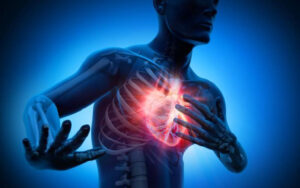Your heart is being weakened by climate change. According to recent research from Semmelweis University in Hungary, people with diabetes, those over 55, and men are more susceptible to heart diseases brought on by changes in atmospheric conditions.
A brand-new field of study called cardiometeorology has emerged as a result of this investigation into how heart conditions are affected by climate change.
Using information from 7,230 patients treated for acute cardiovascular problems at Semmelweis University’s Heart and Vascular Centre in Budapest between 2017 and 2021, Hungarian researchers carried out a thorough analysis.
Their goals were to determine the role atmospheric factors play in cardiovascular disease and to pinpoint patient populations that are particularly vulnerable to weather-related and air pollution-related risks.
The association between patients’ age, gender, cardiovascular risk factors (such as high blood pressure, diabetes, and prior cardiovascular disease), and atmospheric parameters over a five-year period was examined by the researchers using a special mathematical technique.
The results demonstrate that the most susceptible population to atmospheric parameters is the diabetic population. Diabetes patients’ daily hospitalization counts were positively correlated with the interaction of low temperature change (5 degrees Celsius or less) and high ozone concentration (90 micrograms per cubic meter or less).
A comparable correlation was noted between the numbers of male patients admitted to hospitals.
Furthermore, older adults had a greater chance of developing cardiovascular disease as a result of temperature changes than did younger people.
The Hungarian researchers presented their findings in November at an introductory event at Semmelweis University in London and at the annual congress of the European Society of Cardiologists in Amsterdam.
The founder of cardiometeorology, Dr. Nora Boussoussou, is a postdoctoral research fellow at the Heart and Vascular Centre at Semmelweis University.
She emphasized the significance of identifying pertinent weather and air pollution factors, as well as vulnerable patient groups, for healthcare management and prevention.
As a science that seeks to find solutions, cardiometeorology studies how atmospheric parameters and climate change affect cardiovascular diseases and creates preventative measures to lessen negative effects.
Dr. Boussoussou emphasizes the importance of prevention in cardiometeorology by imagining a sophisticated health alert system that enables hospitals and vulnerable patients to get ready for weather-related medical emergencies.




























